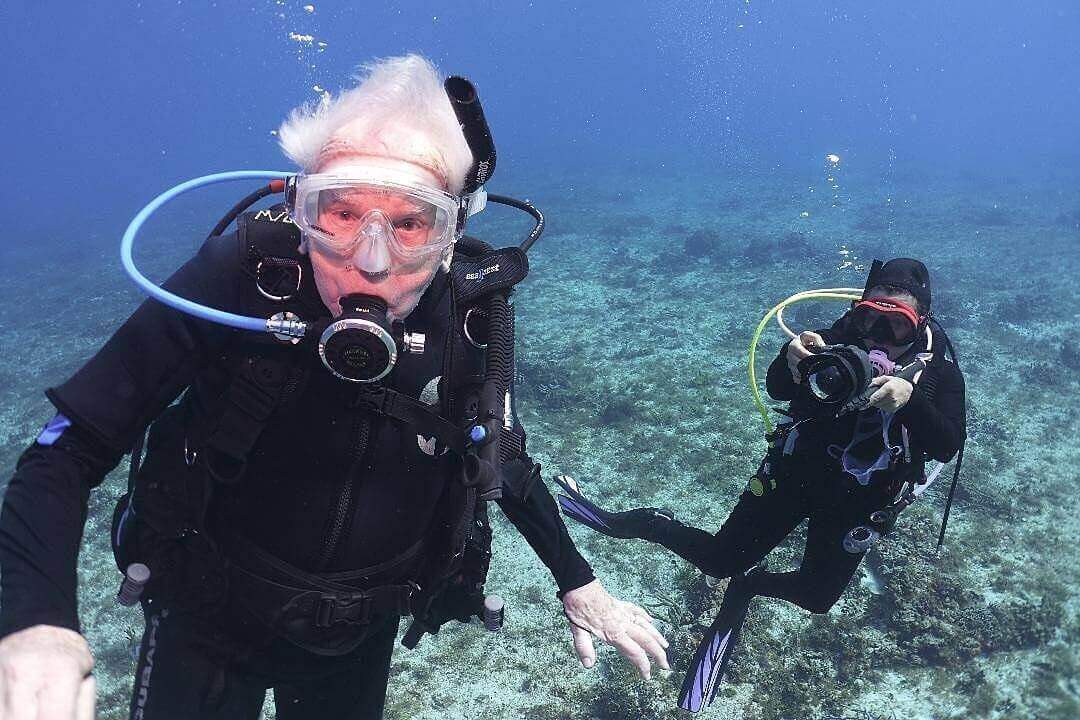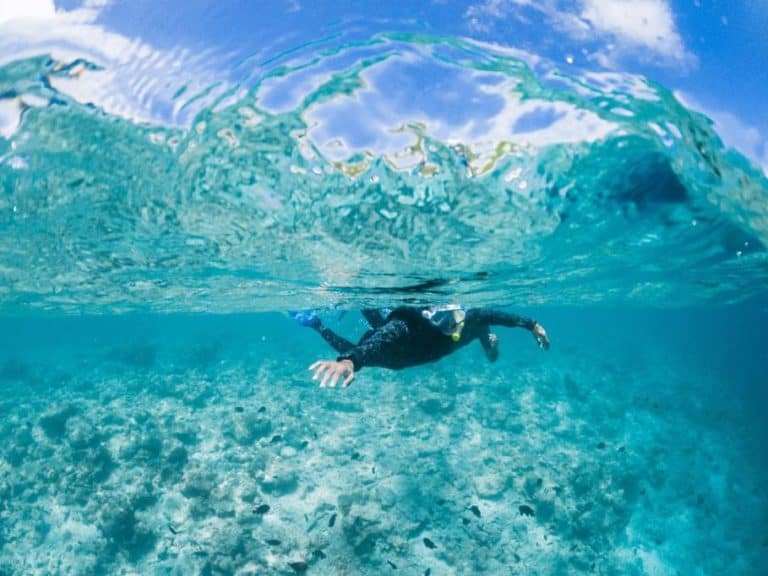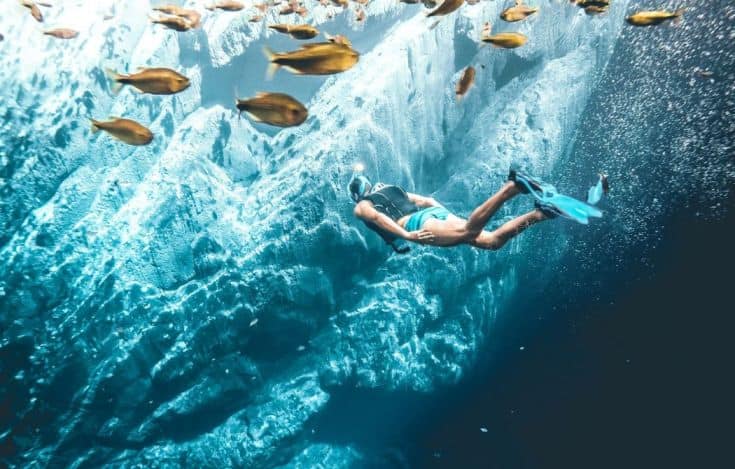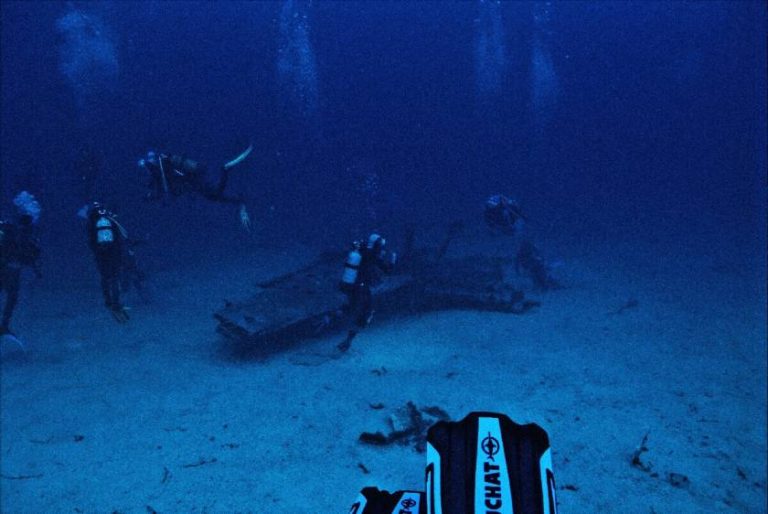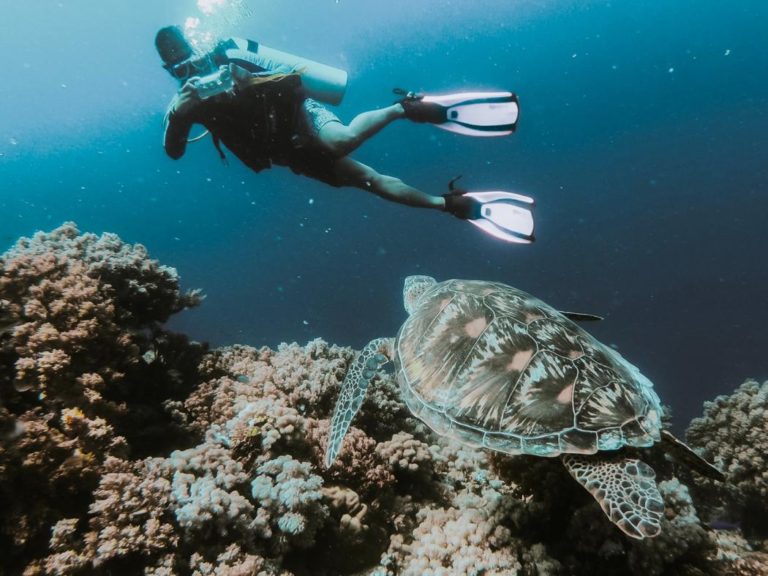Is Scuba Diving Safe for Seniors?
Scuba diving is very popular among all age groups from 10-year-olds to senior citizens. On most recreational scuba diving trips you are most likely to come across younger divers and very few senior citizens. It’s not every day that you brush shoulders with a senior citizen while scuba diving. One may wonder is scuba diving safe for seniors.
Yes, scuba diving is safe for senior citizens especially if they have been diving for a while now. For beginner senior citizens, more safety measures are required since our bodies tend to change as we age. Some of the changes such as weakening immune systems can put the diver at risk while scuba diving.
Many seniors around the world lead very active lifestyles by participating in activities such as walking, dancing, some forms of yoga, water aerobics, and bicycle riding among others.
All these activities help keep the seniors energetic, improve their balance, improve brain function, improve immunity and keep them social.
Most of the activities for seniors don’t require a lot of energy. Scuba diving is very weightless, particularly when in water. Outside the water carrying the diving gear can be very exhausting for seniors.
The oldest scuba diver very recorded in history is Bill Lambert. He currently holds the Guinness world record as the oldest scuba diver. He first dived in 2018 at the age of 98 years old claiming the record after completing a 27-minute dive at 12 meters depth.
This goes to show that even senior citizens can scuba dive as long as they are in good health to do so.
In this article, we’ll dive deeper into scuba diving for seniors, is it really safe, what are the risks and benefits as well as at what age one should stop diving.
Keep reading to learn more!
Ray Woolley, on his 94th birthday, broke the Guinness World Record for the world’s oldest active scuba diver, going to a depth of 38.1 meters for 41 minutes. #MeetTheAmazings pic.twitter.com/goUMPSDLK2
— Dr. Noelle Nelson (@DrNoelleNelson) October 29, 2018
Is Scuba Diving a Good Exercise for Seniors?
Yes, scuba diving is a good exercise for senior citizens since it’s a very weightless activity that can help reduce joint pain, it’s relaxing for the body and mind as well.
In many countries, a senior citizen is anyone above the age of 65. This number can differ from country to country but 65 is a standard number in a majority of the countries.
A 65-year-old senior citizen is most likely in better health compared to a senior citizen aged over 85.
When answering the question is scuba diving a good exercise for seniors, the answer will differ based on the individual.
A senior citizen who has led a very active lifestyle in their earlier years will have more energy and be in better shape to take up scuba diving since their body is still very energetic. In addition, if they started diving earlier in their lives then they have a lot of diving experience to help them deal with underwater issues and risks.
Scuba diving only requires the legs for movement while in water meaning it doesn’t involve using a lot of energy to explore the underwater. This makes it a good exercise for anyone in any age group.
Divers must also be in a good mental state to help make informed decisions when diving.
Diseases such as Alzheimer’s and other neurological disorders often lead to memory loss or the brain’s ability to function to full capacity. Such conditions manifesting at an older age can limit the ability to make good judgment required in scuba diving.

Read More: 13 Reasons Why Scuba Diving Is Good for You
Can You Scuba Dive In Old Age
Yes, in scuba diving age isn’t a limiting factor. Provided the diver is in good physical, mental, and psychological health then they can go scuba diving.
Most diving agencies will require proof of medical examination from your doctor clearing you for diving. With age come more health complications and an increased risk of injuries.
It’s important to have clearance from your doctor as well as have regular checkups whenever you want to go diving.
In this article, what is the Age Limit for Scuba Diving, I discussed the minimum age required in scuba diving as well as the upper limit age requirement for scuba divers. (Click Here to Read more)
99-year-old WW2 vet Bill Lambert attempted to break the world record as the oldest scuba diver ever Thursday (his birthday) at Pearl Lake in South Beloit. See more in tomorrow’s edition. pic.twitter.com/M8zB5sL6iG
— Beloit Daily News (@BDNConnection) September 5, 2019
At What Age Should You Stop Scuba Diving
There is no age limit in scuba diving.
The only factors one should consider are physical, mental, and psychological health. If all these check out and your doctor gives you a clean bill of health to go diving, then enjoy the dive.
With that said, it’s also important to have an understanding of your family’s health history. If there is a history of cardiovascular diseases or heart attacks in the family then extra caution is required among these divers.
Other health conditions to consider include cases of epilepsy in the family, diabetes, or any other condition that could limit your ability to function both on land or in underwear.
Once you have a clear understanding of this medical history, always let the diving instructors or your dive buddies know so they can watch over you.
There is no shame in admitting you have a certain problem. Failing to mention this crucial information will most certainly put you at higher risk.

Benefits of scuba diving for seniors
Some of the benefits include;
- Improved blood circulation and pressure
- Low-impact cardio benefits
- Can improve joint and muscle health
- Helps maintain a healthy weight
- Helps relieve stress
- Meeting other like-minded older citizens
Risks of scuba diving for seniors
Increased carbon dioxide retention when scuba diving. This can be risky for older divers causing seizures, mental confusion, or causing unconsciousness when diving. This is risky as it could lead to drowning.
Other factors to consider before diving include cardiovascular diseases, drugs, and musculoskeletal problems. Having preexisting conditions can be a risk factor for seniors when scuba diving.
Conclusion
We’ve looked at whether scuba diving is safe for senior citizens, some benefits as well as risks involved.
Generally, scuba diving is safe for seniors especially if they took up the hobby in their youthful days as they have gained so much experience over the years.
Seniors taking up scuba diving for the first time can still enjoy the hobby safely provided they are in good health and receive clearance to dive from their doctors.
Age should never be a limiting factor in scuba diving, anyone can learn how to scuba dive at any age.

